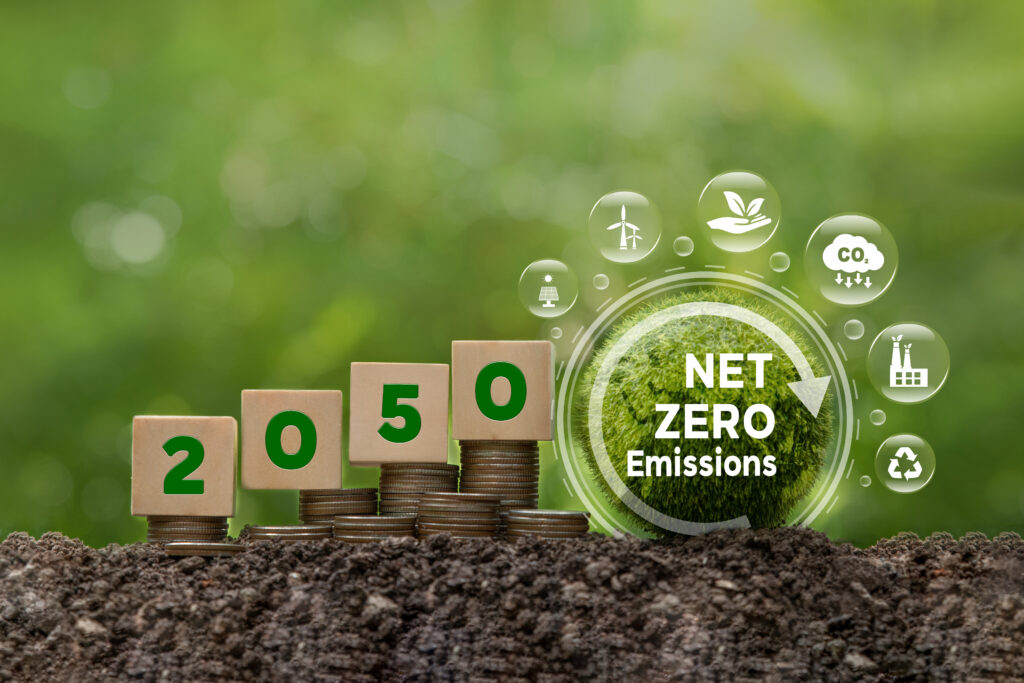
The EU has aimed to reduce its greenhouse gas emissions over the coming decades. Furthermore, the proposal displays concrete steps to slash emissions by 55% by 2030. The EU wants to achieve carbon neutrality as a result by 2050 across the 27 member bloc. If it is achieved, the EU will position themselves as a pioneer in the fight against climate change.
To hit the bold target, the EU plan calls for a revolutionary change in pivotal sectors. It includes manufacturing, energy, transportation, agriculture, etc. These are the sectors which make up the bulk of Europe’s emissions. So every nation will be required to phase out fossil fuel while ramping up renewable energy. Moreover, sweeping some policy changes around carbon pricing and taxation will incentivize reductions. Let us go deeper into their proposal and study its targets.
New carbon pricing schemes
One of the major pillars of the EU to hit its target is expanding its emissions trading system. It is a cap and trade program where businesses are allowed to buy and sell emissions allowances. The idea would introduce marine shipping into the ETS and gradually phase out free aviation permits. In addition, a new ETS is created for fuel distribution to buildings and vehicles. Putting a price on emissions through trading schemes encourages companies to cut carbon.
Carbon offsetting will also be important in achieving carbon neutrality. Projects that reduce carbon, like reforestation, are funded through carbon offsets. It will therefore balance out any hard-to-remove pollutants that are still present. However, offset usage will be kept to a minimum to prevent impeding the need for reduction.
Accelerating the transition from gas and diesel vehicles
This area of the EU’s strategy calls for mandating all new cars sold in 2035 to be zero-emission vehicles. So it will rapidly accelerate the transition from gas or diesel vehicles to alternatives that are hydrogen-powered. To achieve this, multiple charging stations will be needed across European highways as well. The proposal sets an interim goal for automakers. It is to cut average new car emissions by 55% by 2030 compared to 2021 levels.
Boosting renewable energy and efficiency
EU further targets member states to generate 40% of energy from renewable sources. It includes wind, solar, hydroelectric, tidal and geothermal. This stands to be substantial from the earlier target of 32%. Additionally, the strategy targets for a 36-39% increase in energy efficiency across the bloc from 2007 levels. These enormous efficiency gains will be fueled in part. It will be by improvements to lighting, heating/ cooling systems, and building insulation.
Funding a Just Transition
The EU acknowledges the fact that transforming economies at such a rapid rate will come at a cost. While workers will need support and retraining, some industries will have to close. Emissions trading system profits will contribute to the creation of a new €72 billion Just Transition Fund. This is in order to lessen this burden. It will offer assistance to people in need and transition-affected carbon-intensive regions. Additional initiatives like InvestEU will encourage green innovation and investment within the EU.
The Vital Role of the Private Sector
While government policy sets the course, private industry will be essential. Companies have the capital, resources, and innovative capabilities to develop green technologies.
Leading corporations are already stepping up with bold climate commitments. Over 200 major European firms have joined the European Climate Pact. They have pledged carbon neutrality by 2050. Automakers like Volvo are phasing out internal combustion engines. Renewable energy providers are ramping up production capacity. Other companies are making their operations efficient. They are also finding ways to cut emissions across their supply.
Businesses also have an opportunity to lead change through their advertising and marketing. Firms that develop compelling messaging around sustainability can shift consumer purchasing behavior.
Overcoming Challenges Ahead
While the EU is committed to climate action, sweeping change faces political resistance. Fossil fuel-reliant countries worry about rapidly transitioning energy systems. However, climate change’s existential threat justifies short-term costs.
Forward-thinking companies can take the initiative by attending sustainability conferences and events. These venues allow businesses to stay updated on emerging regulations and policies. They also provide opportunities to meet potential green technology partners and suppliers. Initiating pilot projects around efficiency cuts emissions and prepares for larger compliance requirements.
Furthermore, being proactive on sustainability helps attract young talent. They are the ones who are passionate about the climate fight. It also makes companies eligible for lucrative EU green funds and incentives. Smart companies will innovate to gain a competitive edge in the new carbon-constrained economy. They won’t resist progress. It will help to gain a competitive edge in the new carbon-constrained economy. With the collective initiative, carbon neutrality in Europe can shift from aspiration to reality.
Book a seat for one of such events here: https://netzero-events.com/2nd-net-zero-for-life-science/




